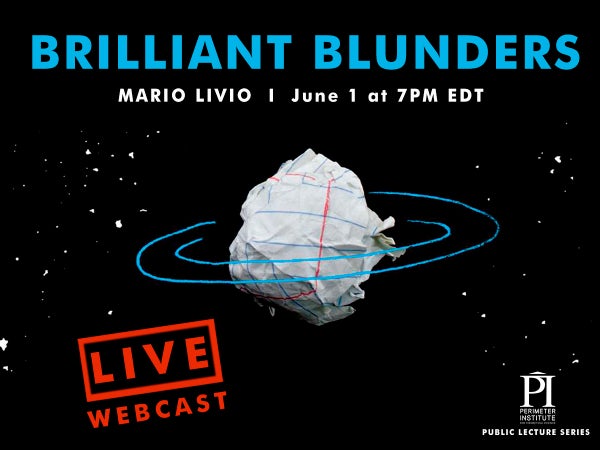Even Albert Einstein made mistakes—as did other towering figures of science such as Charles Darwin, Linus Pauling and Lord Kelvin, to name a few. These errors were not unfortunate incidents in otherwise unsullied careers but vital parts of the scientific process, argues astrophysicist Mario Livio, formerly of the Space Telescope Science Institute in Baltimore.
Livio will detail some central foibles in the history of science in a public lecture tonight at 7 P.M. Eastern time to be broadcast live below. Einstein, for instance, assumed the universe must be static, rather than shrinking or expanding, so he added a term called the cosmological constant to his general relativity equations to force it to be so. When it was later revealed the universe was in fact growing larger, he abandoned the term. Yet his initial error led to a second one, because scientists have since revived his constant as a possible explanation for the fact that the universe is not only expanding, but apparently doing so at an accelerating rate.
The talk, “Brilliant Blunders,” (based on Livio’s 2013 book of the same name) is part of a public lecture series at the Perimeter Institute for Theoretical Physics in Ontario. Online viewers can pose questions by tweeting to @perimeter and using the #piLIVE hashtag.
On supporting science journalism
If you're enjoying this article, consider supporting our award-winning journalism by subscribing. By purchasing a subscription you are helping to ensure the future of impactful stories about the discoveries and ideas shaping our world today.
You can view videos of some past Perimeter physics lectures below:
Shape-Shifting Particles: Mysterious Neutrinos [Video]
The Hunt for Dark Matter and Dark Energy [Video]
Strange, Dense Matter: The Power of Neutron Stars [Video]
How Radioactivity Can Benefit Your Health [Video]
